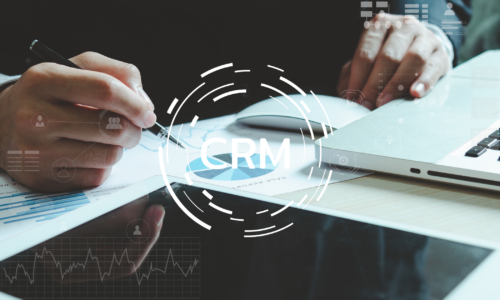Understanding CRM Management and Its Impact on Businesses
- admin
- CRM, CRM Graph, CRM Manager, Digital Marketing
- 0 Comments
A CRM manager ensures smooth customer interactions, enhances engagement, and drives business growth by implementing effective CRM strategies. Their role is crucial in maintaining customer loyalty and increasing revenue.
What is a CRM Manager?
In today’s competitive business landscape, maintaining strong customer relationships is crucial. A CRM manager plays a vital role in ensuring that a company’s interactions with customers are efficient, data-driven, and profitable. From optimizing sales funnels to enhancing customer retention strategies, this role is essential for business growth.

Understanding the Role of a CRM Manager
A Customer Relationship Management manager is responsible for implementing and overseeing CRM strategies that help businesses manage customer data, interactions, and overall engagement. The role requires a combination of analytical thinking, strategic planning, and communication skills to ensure that customer relationships drive business success.
Key Responsibilities of a CRM Manager
A CRM manager plays a crucial role in improving customer interactions and optimizing sales processes. They align marketing, sales, and customer service teams to enhance efficiency and maximize customer satisfaction.
- Develop and implement CRM strategies
A CRM manager designs strategies to enhance customer engagement and loyalty. These strategies use data insights to personalize interactions, ensuring customer needs are met effectively for business growth.
- Optimize the sales funnel
By analyzing customer behaviors and preferences, a CRM manager refines the sales funnel. They identify weak points, improve lead nurturing, and increase conversion rates for higher customer acquisition and retention.
- Coordinate with marketing and sales teams
Effective communication between marketing and sales teams ensures cohesive efforts. A CRM manager facilitates collaboration, aligning objectives to drive customer engagement, boost brand loyalty, and increase revenue growth.
- Monitor and analyze customer data
Data-driven insights help businesses understand customer preferences. A CRM manager tracks customer interactions, purchasing trends, and feedback to optimize marketing strategies and improve customer relationship management.
- Ensure CRM software efficiency
Implementing and customizing CRM tools enhances productivity. A CRM manager ensures the software aligns with business needs, streamlines operations, and improves customer engagement through automation and data-driven decision-making.
The Importance of a CRM Manager for Business Growth
In an evolving business landscape, companies must focus on customer engagement and retention. A CRM manager plays a pivotal role in ensuring seamless interactions and driving sustained revenue growth. Here’s why hiring one is essential:
- Data-Driven Decision Making
By analyzing customer behaviors and preferences, CRM managers create targeted strategies. They leverage insights to improve engagement, optimize campaigns, and drive higher sales performance through data-backed decision-making processes.
- Customer Retention
A dedicated CRM manager ensures customers remain engaged by implementing personalized experiences, timely follow-ups, and retention strategies that foster loyalty and encourage long-term business relationships.
- Sales and Marketing Alignment
CRM managers bridge the gap between sales and marketing teams, ensuring seamless communication, strategy alignment, and collaboration to enhance brand engagement, customer outreach, and conversion rates.
- Increased Efficiency
Through automation, streamlined processes, and optimized workflows, CRM managers improve response times, reduce manual tasks, and enhance overall productivity, allowing teams to focus on core business functions.
- Enhanced Customer Insights
By continuously monitoring customer interactions and feedback, CRM managers identify trends, preferences, and pain points, helping businesses refine strategies and improve the overall customer experience.

Key Competencies and Requirements of a CRM Manager
A CRM manager requires a blend of strategic, technical, and interpersonal competencies to effectively manage customer relationships. Below are the most critical qualifications and skills:
Professional Background & Expertise
- A degree in marketing, business administration, IT, or a related field.
- Minimum of three years of experience in a CRM-related role.
- Extensive knowledge of CRM software such as Salesforce, HubSpot, or Zoho CRM.
- Hands-on experience in customer segmentation, lead management, and automation tools.
Core Competencies for Success
- Ability to assess data trends and translate them into actionable insights.
- Effective collaboration across teams to align customer engagement strategies.
- Familiarity with CRM tools, automation software, and customer engagement platforms.
- Proactive approach to troubleshooting CRM issues and improving customer retention strategies.
How to Hire the Right CRM Manager
When looking to hire a CRM manager, businesses can take multiple approaches:
- Hiring an Experienced Professional
Candidates with CRM expertise can quickly implement strategies to enhance customer relationships and business growth.
- Promoting from Within
Upskilling internal employees saves costs while leveraging their familiarity with company culture and processes.
- Assessing CRM-Specific Skills
Evaluate proficiency in CRM tools, data analytics, and leadership for cross-team collaboration.
- Consider Industry Expertise
Industry experience helps tailor CRM strategies to unique customer needs and business challenges.
- Focusing on Cultural Fit
Hiring a CRM manager who aligns with company values fosters collaboration and long-term success.
Tools Every CRM Manager Needs
A CRM manager relies on various tools to streamline operations and improve efficiency. Some of the most important tools include:
- CRM Software
Platforms like Salesforce, HubSpot, or Zoho CRM.
- Marketing Automation
Email marketing tools such as Mailchimp and Marketo.
- Analytics & Reporting
Google Analytics and CRM-integrated reporting tools.
- Task Management
Trello, Asana, or Monday.com for workflow optimization.
Conclusion
A CRM manager is an invaluable asset to any organization looking to optimize customer engagement and drive revenue. By leveraging data, automation, and personalized marketing strategies, they enhance customer relationships and ensure long-term business success.

Companies like Redzog understand the importance of CRM strategies, helping businesses implement effective solutions tailored to their needs.
FAQs
1. What does a CRM manager do?
A CRM manager oversees the customer relationship strategy of a company, ensuring customer interactions are managed efficiently to enhance satisfaction and retention.
2. What skills does a CRM manager need?
Key skills include data analysis, leadership, technical proficiency in CRM tools, problem-solving abilities, and strong communication skills.
3. Why is a CRM manager important for businesses?
They help streamline customer interactions, align sales and marketing efforts, and optimize data-driven decision-making to increase customer loyalty and revenue.
4. Which CRM tools are best for businesses?
Popular CRM tools include Salesforce, HubSpot, Zoho CRM, and Pipedrive, each offering unique features to enhance customer management strategies.
Leave A Comment
You must be logged in to post a comment.






